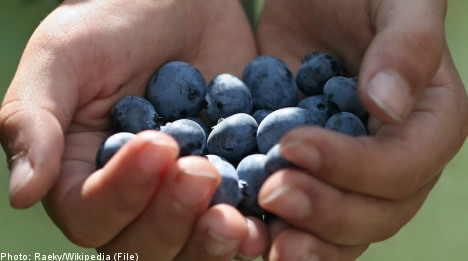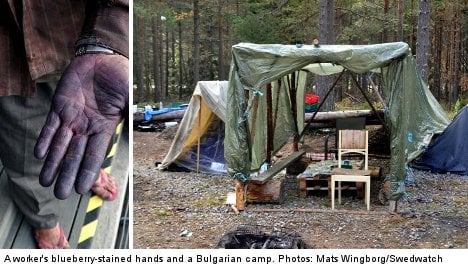The reason for the change is to improve working conditions and clarify the responsibilities of Swedish employers who seek the services of migrant labourers to help with the berry harvest.
“It is not acceptable that people come to Sweden for work and then become exploited. An individual´s right to reasonable conditions must prevail over any special interests,” Jonas Lindgren, Head of Division at The Swedish Migration Board said in a statement.
After several years of scandals involving guest workers imported to Sweden to pick berries in the north of the country the situation came to a head after a disastrous season in 2009, with many berry pickers heading home weighed down by debt instead of profits.
In 2010 the pickers were for the first time provided with contracts guaranteeing them a monthly wage of at least 16,372 kronor ($2,321).
But unions warned that the minimum salary was insufficient, pointing out that it in some cases it was hardly enough to cover the plane tickets, housing and car rental.
In 2010, many berry pickers again found themselves in quite a jam after harvests proved disappointing and the season was characterised by protests and scandals.
In August, Vietnamese guest workers staged two demonstrations against their working conditions and there were reports of ravenous berry pickers shooting wild fowl for food.
In October the press reported that 135 berry pickers had been forced to return to Thailand empty handed after the owners of their employer allegedly emptied the firm of cash and fled.
“The most important thing is that we together with other involved authorities and organizations do what we can so that last year´s situation will not be repeated,” said Lindgren.
New guidelines for the employers will mean that berry pickers can only be hired by a foreign company that has an affiliate in Sweden.
It is this Swedish affiliate company which will be held responsible for following the work conditions in the contracts.
Further, the company has to be able to prove that they can pay the berry pickers’ salaries even if the harvest is poor.
They must also show that they have informed the pickers both of what kind of job they will be carrying out and of the work conditions involved.



 Please whitelist us to continue reading.
Please whitelist us to continue reading.
Member comments